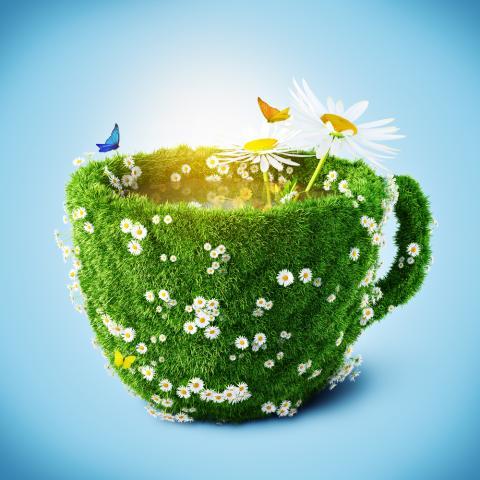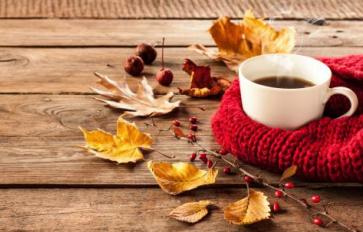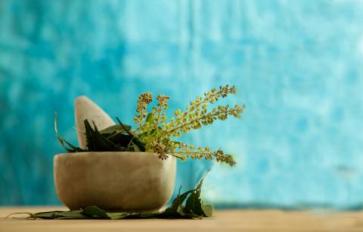
Fresh herbal teas are fantastic, and they have been used over many centuries to improve people’s emotional, spiritual, mental, and physical well-being. Herbal teas can be the most beneficial and delicious when brewed from fresh herbs, and nothing beats an herbal tea made from freshly grown herbs you’ve produced yourself. So, why not try growing your own herbal tea garden? Most of the herbs used in teas are easy to begin and continue growing. Let me show you how to get started growing your own herbal tea garden, so you can move towards drinking your teas the freshest, economical, and sustainable way.
Choose your herb(s)
There are so many choices when it comes to choosing herbs for tea. Some herbal teas are easier to grow than others. Your choice may depend on several different factors such as uses or flavor. Here is an article on 7 herbal teas for healthy skin. I provided a list of a few easy herbs to grow for making great tea, along with some of their Ayurveda purposes. Personally, I have grown most of these, and I found lemon balm was the easiest and most resilient. You could choose a personal favorite of your own, or pick one from the list I provide below. A few places to obtain seeds for herbs would be from a local gardener, seed library, or gardening store.
- Basil –spiritual healing, insect bites, and improving memory
- Catnip – healing, nursing, sleeping aid, and calming nerves
- Chamomile – calming nerves, relaxation, healing, and improved health
- Echinacea – healing, improving immune system, appetite enhancer
- Holy Basil – relaxation, destress, insect repellent, healing
- Lavender – insomnia relief, relaxation, healing, and control of convulsions
- Lemon Balm – calming nerves, sleep-aid, healing wounds, healthy skin
- Lemon Grass – lower cholesterol, improve digestion, sleep-aid
- Milk Thistle – liver health, diabetes, gallstone prevention
- Mint – weight loss, nursing, healing, oral health, skin
- Nettle – allergies, healing, boosting testosterone, blood pressure
- Passion Flower – sleep aid, lowering blood pressure, and healing skin
- Rosemary – aromatherapy, vitamins, aiding memory or concentration
- Yarrow – inflammation, healing wounds, and digestion health
Research the Herb(s)
Take some time to research the herb you are trying to grow. Try asking questions to someone who is already growing the herb, check for books about growing the herbs from your local library, or do some research on the web. Find out things like the best kind of location for the herb and how much water or sunlight it needs. By informing yourself about the herb, you can figure out the best ways to grow it. One of my favorite things to do before growing an herb is to look-up the benefits and uses of the herb when in tea form.
Choose an Area
Now that you have taken the time to research your tea herb, you will know how to choose a location for it. You can grow your herbs in your outside garden or indoors using containers, depending on your gardening circumstances. Some people choose to grow their tea leaves indoors so they can have an all year access to their favorite herbal teas. If your herb requires a good bit of sun, place your herb in an area where there is a lot of sunlight. Some herbs require very little sun, and will grow best in shady areas.
Prepare the Soil
Prepare the designated gardening area or potting soil for your herbs. You will want to make sure your soil has the proper pH levels as well as the adequate nutrient needs of your herbs. If your soil does not have the proper nutrients or pH levels, then look for ways to organically improve the soil as needed. Most herb seeds need moist soil, so watering the area is a good idea prior to planting your seeds.
Plant Your Herb Seeds
Using the required growing measurements for your specific herb of choice, place and plant the seeds into the prepared soil. Nurture your seeds by ensuring they have the proper amount of water, nutrients, and sunlight daily. When your herbs grow successfully, you can harvest parts of the plants to make tea.
After you get the hang of growing your own tea herbs, you have the option of growing more by saving some of the seeds from the herbs you are already growing. Re-use your already used herbal tea matter by creating compost tea to naturally enhance your garden.
Stay tuned for more organic home gardening tips and ideas!








